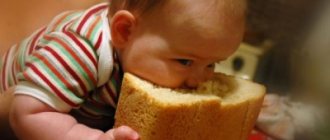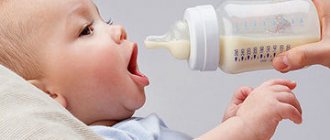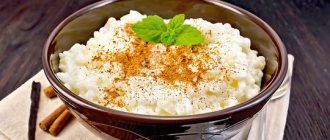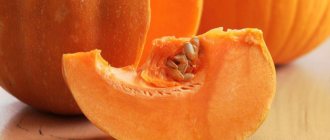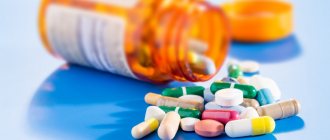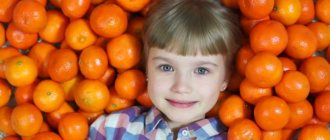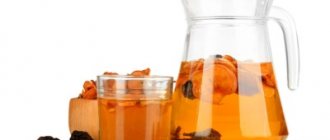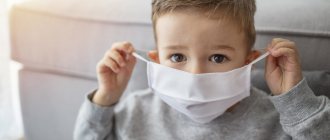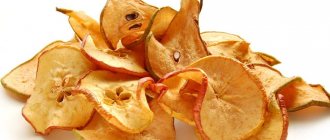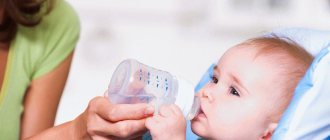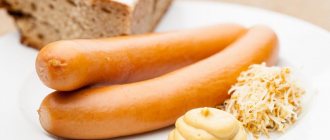Professional skills: Colon hydrotherapy, treatment of gastrointestinal diseases
Does your child have indigestion and doesn’t want to eat? Don't worry - give your baby as much fluid as possible. It is better to know in advance what you can feed your child with diarrhea and think over a safe menu. Remember that your appetite will return soon.
Children's diet for diarrhea
Therapeutic fasting for indigestion makes sense for several hours. If the child is already asking for food, you need to feed him. A diet for diarrhea should be complete, but at the same time safe. Doctors say that introducing an unwanted product into a patient’s diet can provoke an exacerbation of the disease.
For acute illness
When the gastric mucosa is exposed to aggressive factors in the form of spices and difficult-to-digest foods, an acidic environment begins to predominate in the gastrointestinal tract. This increases the negative manifestations of diarrhea, provokes severe abdominal pain, belching, and nausea. Therefore, in case of acute diarrhea in children, it is necessary to adhere to a strict diet.
To achieve rapid restoration of intestinal function, it is necessary to give the child:
- Low-calorie healthy dishes.
- Products with minimal fiber content.
- Drinks that help restore water-salt balance in case of poisoning.
- Food that promotes consolidation of stool.
Food and drink must be warm. Excessively cold food is poorly digested, and hot food injures the mucous membrane.
For children's diets, it is recommended to use safe, low-calorie foods. Best suited for:
- Rice porrige . It does not irritate the mucous membrane during diarrhea and significantly helps to consolidate the stool.
- Apples baked . After heat treatment, these fruits consist of almost only pectin. This allows them to qualitatively replenish the lack of nutrients in tissues and stimulate the restoration of normal functioning of the intestinal tract.
- Wheat bread, lean loaf . The pediatrician may also recommend eating wheat crackers, sweet and salty crackers.
There is a significant difference between what children can eat at one year old and at 6-7 years old. But the principles of eating are very similar. When treating diarrhea caused by dysbacteriosis, poisoning or intestinal infection, it is necessary to change the frequency of meals. Gastroenterologists recommend that instead of feeding the child three times a day, give him food 6-8 times a day. This requires significantly reducing portions.
Important! If, despite the diet, the disorder increases, you should urgently consult a doctor. It may be necessary to prescribe other medications to eliminate diarrhea and additional nutritional correction.
During the recovery period
If the patient's stool returns to normal, you can already decide what to give the child to eat after diarrhea. The menu for a child's diet at 2 years old may differ from that for an adult. But at 3 years old you can feed your baby about the same as a teenager suffering from diarrhea.
A gentle diet for a child is maintained for 3-10 days. Products included in a child's diet after diarrhea:
- Meat : lean pork, chicken breast, turkey. Steamed meat dishes are prepared, and broth is boiled with the meat.
- Fish : The diet for children involves eating only lean fish. Hake or pollock are more suitable. Bones are easily removed from them, which allows you to cook steamed cutlets.
- Dairy products : you can feed your child low-fat cottage cheese, baby kefir, yogurt. Fermented milk products given to sick children should not contain fruit additives or dyes.
- Eggs : hard-boiled only. The best option for diarrhea in children is to eat cooked whites, discarding the yolk.
- From fruits : raw bananas, quince and pear – pureed or baked. For diarrhea in children aged 4 to 7 years, these fruits help restore digestion faster and stimulate consolidation of stool.
- Vegetables : potatoes, carrots. Better pureed or baked. It is not advisable to add milk to vegetable dishes.
- From cereals : rice, boiled buckwheat and in soups. Also, for diarrhea, a child is sometimes given oatmeal, which coats the walls of the stomach well, reducing the irritating effect of toxins.
It is advisable to decide together with your doctor what foods can be given to a baby who often suffers from intestinal disorders. The first week after stabilization of stool, you need to feed the child in the same way as during diarrhea.
If the cause of loose stools is poor nutrition, the child’s diet must be adjusted during the treatment period. To restore the intestinal microflora, it is recommended to give the patient a sufficient amount of fermented milk products.
Is it possible to give formula to a child with diarrhea? – About diarrhea (diarrhea)
Frequent loose stools often occur in children. This is a common reaction of a still weak intestine to food. Diarrhea in children can be caused by a violation of the feeding regime, introduction of complementary foods, or switching to another formula.
Why does a child have diarrhea?
Breastfed babies may react with bowel problems to changes in their mother's diet. Therefore, nursing mothers must adhere to a certain diet - nothing fatty, spicy, or smoked.
You should not overuse fresh fruits and vegetables.
At the same time, the diet of a nursing woman must be balanced, since a lack of microelements and vitamins contributes to the development of vitamin deficiency, which also results in diarrhea in infants.
In children under 1 year of age, diarrhea often occurs after the introduction of infant formula as a supplementary food. Perhaps this is a common reaction to new food.
The child should be transferred to a new diet gradually, starting with minimal doses. Perhaps the composition of the selected mixture is not suitable for the baby, the child is lactose intolerant or allergic to cereal proteins (gluten).
You should switch to lactose- and gluten-free formulas.
Children after 1 year are introduced to a more varied diet. Some parents try to diversify their child's diet with foods that are not recommended for the baby. These products include fresh vegetables and fruits containing fiber; they are best served baked.
And also mushrooms, sausages, fatty meats, shrimp, cocoa, sweets, nuts, carbonated drinks, natural concentrated juices (they need to be diluted with boiled water), fast food products - chips, French fries, etc.
The introduction of age-inappropriate foods leads to digestive upset.
But there are other causes of diarrhea:
- viral and infectious diseases, most often rotavirus is diagnosed in children;
- taking medications;
- binge eating;
- abuse of dairy products;
- failure to comply with hygiene rules;
- dysbacteriosis;
- poisoning;
- allergy;
- teething;
- diseases of the gastrointestinal tract;
- pathologies of other organs - liver, pancreas.
Why does my baby have diarrhea after formula?
If the cause of loose stool in a child is not infections, viruses, or organ pathologies, it may have been provoked by:
- Lactose intolerance or lactase deficiency is a disease characterized by intolerance to milk. The main causes of this disease is the absence or insufficient amount of lactose in the intestines - an enzyme that promotes the breakdown of milk sugar (lactose). Lactose intolerance can be congenital or acquired as a result of previous diseases or taking antibacterial drugs. Typically, lactase deficiency is typical for newborns and goes away as they grow older. This is due to the peculiarity of the immature intestine. Symptoms of this disease are: foamy stools with a sour smell, flatulence, regurgitation, insufficient weight gain of the child.
- A grain allergy is an intolerance to the substance gluten, which is contained in the gluten of cereals. Some mixtures may contain one or more types of grains. In this case, the gluten content is indicated on the packaging. A characteristic feature of this disease is that gluten, when entering the body, causes inflammation of the intestinal walls. As a result, a large volume of fluid is released, which leads to diarrhea. Associated symptoms are: underweight, retarded physical development, flatulence, loose stools with foam and an unpleasant odor.
Nutritional features of breastfed children
If it is time for a breastfed child to introduce complementary foods, do not do this during diarrhea, wait until the stool returns to normal. If he is already on supplementary feeding, stop it.
Let the baby eat only mother's milk, replenishing lost moisture and nutrients. The only rule: feed more often, but in smaller quantities. Feeding regularly every two to three hours. In addition, you need to give your child boiled water every half hour.
To normalize the microflora in children who have received additional nutrition, you can also use medicinal mixtures containing lactic acid bacteria, but only as prescribed by a doctor.
For infants with lactose intolerance, nutrition is as follows: before each feeding, they are given the drug lactazar, which is diluted in a small amount of breast milk.
Nutritional features of bottle-fed children
A bottle-fed baby should continue to eat formula during frequent bowel movements. The only thing that can be done is to switch him to adapted fermented milk and gluten-free formulas, and also change his diet. That is, you need to feed the baby more often and in small portions. And don't forget about drinking. The loss of moisture must be replenished.
So, it is possible, even necessary, to give the mixture for diarrhea, only without lactose and gluten. The baby should receive nutrients regularly, especially during frequent bowel movements, when useful elements, along with feces and large amounts of liquid, are quickly washed out of the intestines, promoting rapid weight loss. And this is dangerous for the child.
Nutritional features of children over 1 year old
A one-year-old child with diarrhea can be given the same fermented milk mixtures, which help normalize the intestinal microflora. Be sure to drink plenty of fluids and follow a diet.
If indigestion is not accompanied by vomiting, you can include boiled rice porridge in water and without salt, bananas, and carrot puree in your diet. When the condition improves, broths, boiled vegetables and meat puree, low-fat cottage cheese, and baked apples are introduced.
It is forbidden to give milk, juices, fresh vegetables and fruits, sparkling water, and sweets. The diet should be followed for a week even after stool normalization. Yogurt has a good effect on microflora. But only pharmacy.
If you are allergic to cereals, exclude dishes containing semolina, pearl barley, oatmeal, wheat, barley, pasta and flour products.
What to do if your child has diarrhea?
In addition to following a certain diet, the child must receive enough fluid to avoid dehydration. Children under 1 year of age are recommended to be given 30-50 milliliters of liquid after each bowel movement, older ones - from 60 milliliters.
The required amount of water should be given in parts, a few sips. To replenish and maintain moisture reserves, special glucose-salt products are used: Regidron, Trihydron, etc.
It is recommended to dissolve them in boiled water and add them to the prepared formula or breast milk in a 1:1 ratio. You should also take medications to stop diarrhea. A safe product for newborns is the drug Zinkit containing zinc.
Its dosage ranges from 10 to 20 milligrams per day, depending on age, for two weeks.
In addition, it is necessary to give the baby adsorbents to remove toxins. The optimal ones are Smecta, Enterosgel. In addition to treatment, I prescribe probiotics that normalize microflora, for example, Hilak Forte (15 drops per teaspoon of water).
In case of lactase deficiency, milk and infant formula should be excluded. And if the child is breastfed, he is prescribed enzyme medications that help break down milk sugars.
How to overcome diarrhea with folk remedies?
- An infusion of a healing herbal collection, consisting of 3 parts chamomile flowers, 3 parts lemon balm leaves, 2 parts thyme herb, 1 part blueberries, 1 part cinquefoil erect, pour 500 milliliters of boiling water. Leave for 10 minutes. Give the baby a few sips a day.
- Brew green tea, which has an astringent and antimicrobial effect due to the tannins contained in it. Dosage – a few sips throughout the day.
- To a tablespoon of lingonberry leaves you need to add a glass of boiling water, cook for five minutes, let it brew for at least an hour. Children's dosage: one teaspoon every hour.
- Rice water. Cook the rice until the grains are completely softened, this is about forty minutes. Give a baby up to 1 year a teaspoon every hour, and from a year old a dessert spoon.
- Pour a teaspoon of powdered pomegranate peel into a glass of boiling water. Cook at minimum temperature for 15 minutes, cool, strain. Give by spoon three times a day.
The use of any folk remedies should be agreed with the pediatrician. Do not take risks by self-treating your baby, even with seemingly harmless folk recipes.
Source: https://ponosa.net/pitanie/mozhno-li-davat-smes-rebenku-pri-ponose.html
Normalization of water-salt balance
Diarrhea is always characterized by severe loss of fluid. Therefore, a timely procedure for replenishing water and salts in the body is especially important. The baby should be given a drink when the first symptoms of diarrhea appear. It is advisable to take liquid in small volumes, a few tablespoons, but very often, every 10-15 minutes.
In addition to medicinal solutions, you can consume the following liquids:
- Blueberry jelly . Dried berries are used to prepare the drink.
- Dried fruits compote . After cooking, you need to drain the compote, immediately removing the pulp and seeds. You can’t add prunes to the drink - they weaken you.
- Tea . Black tea, not brewed very strongly, is suitable. A little sugar is added to the drink. Also, children from six months old can be given chamomile tea.
- Mineral water . It is advisable to release gas bubbles from it.
After eliminating acute diarrhea, to maintain a normal fluid balance in the body and restore the functioning of the intestinal microflora, the child should be given fermented milk drinks - fermented baked milk, whey, kefir.
How to treat?
First of all, you need to take care of food and drink for the baby. The mixture for the baby should be diluted by half, increasing the concentration of food only after the stool has normalized. If the child has already been introduced to complementary foods, then all complementary foods should be discarded during the treatment of diarrhea.
It is important to replenish the water lost during diarrhea, not forgetting about salts. That is why babies with diarrhea should be given special salt solutions to drink, which should certainly be in the first aid kit in every home. Liquid should be given in small quantities every 10-20 minutes.
Source
Nutrition for children from birth to 1 year
In case of food poisoning in children under one year of age, the features of the diet depend on what the baby previously ate.
For breastfed babies
An infant with diarrhea should continue to be fed breast milk. It is advisable to increase the number of breastfeedings, alternating between taking medications to relieve abdominal distress and eating food.
Lactation consultants say that even if the baby is already 1 year old, there is no better food for him during acute intestinal disorders than breast milk. Consumption of other dairy products can only worsen the condition.
Diet of patients receiving artificial milk formula
No adjustments to a formula-fed child's diet are required for diarrhea if diarrhea does not increase when consuming the formula. But, in some cases, if the baby’s condition worsens, it is necessary to transfer the baby to adapted formulas (dairy-free, low fat). It is best to discuss the selection of formula for children under one year of age with a pediatrician.
Meals from 1 year
The diet for diarrhea in a child over one year of age is especially carefully regulated. The child has already tried many different foods that affect digestion. Therefore, you need to know exactly what a child can eat with diarrhea, and what it is better to avoid.
Nuances that parents need to know about:
- The volume of drinks consumed during diarrhea should be increased. You need to give your baby a compote of dried pears, raisins, apples, and jelly to drink.
- A one-year-old baby with loose stools needs to eat very often, up to 8 times a day. Portion sizes are minimal.
- If the patient does not want to eat, he should not be forced.
Products allowed for diarrhea:
- Dry cookies, crackers, croutons.
- A one-year-old child with diarrhea can be given porridge made from broken rice, boiled in water.
- Mashed puree from baked apples and pears.
- Mashed boiled potatoes or carrots.
- Chicken broth, it has a beneficial effect on the intestines if a child has diarrhea.
- It is acceptable to use boiled vegetables in soups.
- Raw bananas.
The pediatrician can tell you what to feed your child after diarrhea. It is advisable to gradually introduce heavy foods, giving preference to cereals and boiled vegetables at first. You can return to a normal diet no earlier than a week after your stool has stabilized.
Nutritional features of bottle-fed children
When a child develops diarrhea, this inevitably leads to a lack of water. And it must be replenished. Therefore, you should give your baby water to drink more often. Another factor that needs to be taken into account with diarrhea is that beneficial microorganisms and vitamins are washed out of the intestines along with frequent stools. And the lack of nutrients should also be replenished.
During loose stools, it is not advisable to switch your child to other types of food. It is unknown how the intestines will react to dietary changes. The only thing that needs to be done is to switch the child to fermented milk mixtures. In addition, mixtures that exclude gluten are recommended.
If you have diarrhea, you need to feed your baby in small portions, but more often than usual.
In addition to switching to fermented milk formulas, if your baby has diarrhea, you should immediately consult a pediatrician. It is unknown what caused the diarrhea. If the cause of deterioration in health is an infection or viruses, then not only a change in diet is required, but also therapeutic treatment. Diarrhea is a dangerous disease, especially in young children, which must be treated with medication.
Source
What to feed during diarrhea is undesirable
If you are upset, you should not give your child candy, carbonated drinks, chocolate, or other sweets. Sugar can increase flatulence, causing the condition to worsen.
If your child has loose stools, they should not eat:
- Baked goods containing a significant amount of sugar, rich cream, honey.
- Chips, seasoned salty crackers, waffles.
- Vegetables that have not undergone heat treatment, fruits.
- Fresh bread (especially rye).
- Salo.
- Milk, condensed milk.
- Milk sweet porridges.
- Fried fish.
If you have a digestive disorder, your child should not be given canned vegetables and fruits. Also, if you have diarrhea, it is not recommended to eat semolina porridge with milk. In general, if you have intestinal problems, it is better to avoid complex dishes for a while.
The appearance of vomiting and abdominal pain when the diarrhea stops indicates a deterioration in the little patient’s condition. In such situations, you should immediately seek medical help.
Diarrhea occurs in both adults and children. Children suffer from diarrhea even more often, because their intestinal microflora is not yet strong, and the desire to put dirty hands or inedible objects into their mouths is uncontrollably great. The child's body may react with diarrhea to an intestinal infection or overeating. Diarrhea is also a sign of diseases of many internal organs - primarily the gastrointestinal tract. If your child has diarrhea, consult a doctor who will help determine the cause, refer for tests, if necessary, and prescribe adequate treatment. Frequent diarrhea, accompanied by symptoms of dyspepsia, requires special attention. In any case, diarrhea requires the baby to follow a certain diet. Let's look at what a child's diet should be if he has diarrhea.
Possible reasons
The digestive tract of a baby in the first months of life is not yet fully developed, and enzymes are less active. It is difficult for infants to digest proteins and fats, especially for those babies who are fed formula. For this reason, artificially fed babies develop indigestion more often when overfed.
Since the protective function of the intestines in young children is insufficient, the gastrointestinal tract of children is more susceptible to microbes, allergens and toxins. This is also a factor in the frequent occurrence of diarrhea in infants. That is why intestinal infections are the most common cause of loose stool in babies.
Diseases not related to the gastrointestinal tract, such as colds or otitis media, can also cause diarrhea in infants.
Other causes of diarrhea in an artificial baby may include:
- Changing the mixture.
- Food poisoning.
- Early introduction of complementary foods.
- Teething.
- Lactose or gluten intolerance.
- Appendicitis or intestinal obstruction.
- Medicines (very often antibiotics).
- Worm infestation.
- Cystic fibrosis.
- Pancreatitis.
- Stress.
- Contaminated hands, toys, dishes.
- Celiac disease.
- Dysbacteriosis.
What to feed a toddler with diarrhea?
In the acute period, when diarrhea is accompanied by low-grade or high fever, vomiting, it is better to avoid food altogether. Give warm drinks constantly and in small portions - it can be plain water, a weak infusion of herbs, mineral still water, rehydron. When the child’s condition has improved slightly, the vomiting has stopped and he does not refuse to eat, transfer him to semi-liquid food or purees. Porridges should be liquid or ground. Completely remove bones from meat and lean fish and puree them.
In acute diarrhea, the main task is to stop dehydration of the body and relieve the affected gastrointestinal tract. To do this, the child needs to temporarily replace food with a warm, healthy drink.
Foods that should absolutely not be given to a child with diarrhea:
- fast food food;
- chips and store-bought salted crackers, nuts;
- candies and chocolate;
- sparkling water;
- chewing gum.
Even if your baby recovers quickly, do not give in to persuasion, do not give your baby anything from the list above in the immediate future after diarrhea. These products, getting into a diseased stomach and intestinal tract, can cause a sharp deterioration, the development of gastritis, inflammation of the pancreas, liver disease and gallbladder dysfunction. After the acute period of the disease has passed, vitamin complexes are prescribed in addition to the main medications and diet to restore the microelements removed from the body.
Your baby’s diet during severe, frequent diarrhea and immediately after it should exclude foods that cause fermentation in the intestines and themselves weaken:
- fermented milk products and milk;
- vegetables, especially cabbage, beets and tomatoes;
- salted, pickled and smoked dishes;
- mushrooms;
- rich pastries.
Nutrition for diarrhea in infants
Pediatricians of past years believed that infants with diarrhea should eat as little as possible. Modern medicine is of the opinion that if a baby has diarrhea, it is necessary to feed it even more often, only the dosage at a time should be less. Breast milk is a unique product; the microelements it contains can restore the baby’s health on its own. The situation is more complicated with bottle-fed infants: they will have to be given a special mixture, the amount of which will vary depending on the frequency of vomiting or regurgitation. Usually, a child under one year old on IV with diarrhea is fed 50 ml every 2-3 hours, and on the fourth day they switch to the normal feeding regimen. Babies from 4-5 months can be introduced to the diet with dairy-free rice and buckwheat porridge, from 7-8 months - meat puree and rich broth, mashed yolk, berry jelly.
Diarrhea in a child caused by the transition to artificial feeding
Many women who have given birth are concerned about the question of what to feed the baby if for some reason the mother’s milk disappears or it is not enough to nourish the newborn. You can find hundreds of formulas on store shelves, but infants do not always respond adequately to artificial feeding: some of them develop diarrhea and diarrhea, which goes away after the body adapts to the new type of nutrition. Poor-quality formula, non-compliance with the feeding regimen, a sharp transition from breastfeeding to artificial feeding often leads to an exacerbation of diarrhea in the baby, which can lead to dehydration. To avoid such a development of events, it is recommended to carefully monitor the child’s condition: give him water more often, promptly change the diaper in case of diarrhea, and, if necessary, give fixatives approved by the pediatrician.
Diet for diarrhea in children over one year old
The main rule is small and frequent meals compared to the usual diet. Usually two additional meals are added between standard feedings. It is better to focus on liquid porridge and soups with buckwheat, rice, oatmeal, and millet. When the one-year-old baby’s condition improves somewhat, switch to pureed soups made from the same cereals with the addition of potatoes, zucchini, carrots, and pumpkin. You should not get carried away with vegetables, but during a period when a child has problems with the gastrointestinal tract, they are necessary, as they contain a lot of pectin. Pectin is a plant glue that binds water, swells and adsorbs pathogens and toxins. This results in a natural cleansing of the body. In addition, when pectin enters the body, it breaks down into many microelements, the main one of which is calcium. Calcium restores the intestines and fights inflammation. If you have diarrhea, it is useful to drink compotes and blueberry jelly, and eat desserts made from fresh berries.
Why does my baby have diarrhea after formula?
If the cause of loose stool in a child is not infections, viruses, or organ pathologies, it may have been provoked by:
- Lactose intolerance or lactase deficiency is a disease characterized by intolerance to milk. The main causes of this disease is the absence or insufficient amount of lactose in the intestines - an enzyme that promotes the breakdown of milk sugar (lactose). Lactose intolerance can be congenital or acquired as a result of previous diseases or taking antibacterial drugs. Typically, lactase deficiency is typical for newborns and goes away as they grow older. This is due to the peculiarity of the immature intestine. Symptoms of this disease are: foamy stools with a sour smell, flatulence, regurgitation, insufficient weight gain of the child.
- A grain allergy is an intolerance to the substance gluten, which is contained in the gluten of cereals. Some mixtures may contain one or more types of grains. In this case, the gluten content is indicated on the packaging. A characteristic feature of this disease is that gluten, when entering the body, causes inflammation of the intestinal walls. As a result, a large volume of fluid is released, which leads to diarrhea. Associated symptoms are: underweight, retarded physical development, flatulence, loose stools with foam and an unpleasant odor.
Is your one-year-old baby suffering from loose stools?
Include boiled, steamed or oven-baked fruits and vegetables in your child’s diet - this improves processes in the gastrointestinal tract and relieves intoxication in the body. You can add lemon and cranberry juice to compote, jelly, mousse or jelly. Fermented milk products, which restore intestinal microflora, are allowed to be introduced on the third day. It should be low-fat (2.5%). The following drugs are suitable:
- Narine;
- biokefir;
- acidophilus;
- Lactonium.
Fermented milk products for diarrhea or unstable stools help restore the balance of beneficial microflora in the child’s body and prevent dysbiosis
It is better to give them to your little one in liquid form. To complement these liquid fermented milk drinks, you can offer your baby crackers, white bread crackers, and dry biscuits. During the same period, baked apples should be introduced into the diet. They perfectly restore the intestinal mucosa and contain many microelements. You can add banana puree and low-fat cottage cheese.
By the beginning of the second week after acute diarrhea, the following products are added to the toddler’s menu:
- Raw apples. It is better to first grate them or chop them very finely.
- Chicken cutlets or meatballs - steamed are best, but stewed or boiled are also suitable.
- Cutlets or meatballs made from minced fish.
- Vegetable soups without frying.
Drinking for diarrhea
When a child has diarrhea, even if it is not accompanied by vomiting, the main rule is to prevent dehydration of the body, and only then maintain proper nutrition (see also: what to do if a child has green diarrhea at 1 year of age?). Dehydration is dangerous because it causes disturbances in the functioning of the entire body, sometimes irreversible, affecting the central nervous system, skin, condition of mucous membranes, vision, hair and nails. Your goal is to feed your child as much as possible. Let's drink in small doses. It can be:
- special saline solutions to restore the water-salt balance in the patient’s body (Regidron, Oralit or Gastrolit, known since Soviet times);
- herbal decoctions, compotes (rice water, rosehip or chamomile tea, dried fruit compote);
- boiled water;
- saline solution prepared at home, if pharmacies are far away or are already closed (half a teaspoon of salt, soda and sugar per glass of warm boiled water);
- vitamin drink (chopped ripe banana with a teaspoon of sugar, half a spoon of salt and pour a liter of warm water).
The nutrition of children both at 2 years old and at 7 years old should be gentle. Modern parents often do not watch what goes into their child’s mouth. Chips and lemonade, an abundance of sweets and dry food have long become the norm for the majority. Disordered eating leads to children suffering from symptoms of dysbiosis and gastritis, and obesity. Remember that health directly depends on what a person puts into his body during meals.
IMPORTANT! Every mother should know what to feed a child with diarrhea. The opinion that food is completely contraindicated in case of stool disorders is erroneous. The baby needs food that will help restore strength and avoid intoxication.
During illness, it is important to choose the optimal diet. Diarrhea is dangerous for young children. Rapid loss of fluid from the body can lead to a deterioration in health and the development of complications.
What to do if an infant has diarrhea or diarrhea?
The diet of a child over one year old undergoes significant changes. Many parents, in an attempt to diversify the children's “menu,” go beyond what is permitted: they begin to feed their children fresh fruits, vegetables and berries (while the rules provide for their heat treatment and puree), mushrooms, sausages, and hard-to-digest meats. (pork, beef, lamb, horse meat), sweets, nuts, freshly squeezed and packaged juices (these drinks should not be given to children in concentrated form: before consumption they must be diluted with water in a 1:1 ratio), lemonade, fast food. Failure to follow the rules of feeding leads to the fact that babies develop diarrhea and diarrhea, which depletes the child’s body and prevents the absorption of beneficial microelements: the child sharply loses weight, becomes lethargic, nervous, constantly sleepy, capricious and demands attention. If, in addition to diarrhea in a child, vomiting and bloating are added, which is typical for poisoning and gastrointestinal diseases, then the child loses sleep and appetite, cries, and suffers from heat and fever. If your baby is not treated in time for severe diarrhea, he may die from exhaustion due to dehydration, so if these symptoms occur, you should immediately call a doctor.
If other symptoms besides diarrhea and frequent and severe diarrhea are not observed, you can give the child a fermented milk mixture, which will normalize digestion and eliminate stool upset. You can also give liquid rice porridge to a child with diarrhea, boiled in water without adding salt, banana or carrot puree, baked apples, soft low-fat cottage cheese, boiled vegetables, natural (classic) yogurt. If a woman does not know what foods should not be given to her baby with diarrhea, then the following information will be useful. The list of prohibited foods includes whole milk, natural and packaged juices, raw vegetables, fruits and berries, carbonated drinks, and sweets. The diet is followed until the symptoms of diarrhea disappear completely. For seven days after the diarrhea stops, a gentle diet is recommended, excluding foods that are difficult to digest.
Source
Basic principles of the diet
Mothers should be extremely attentive to the daily diet of a sick baby. It is necessary to constantly monitor your health status. Diarrhea entails exhaustion, abdominal pain, and fermentation in the gastrointestinal tract. A special diet for diarrhea in a child is an important treatment measure. It is selected strictly individually according to the doctor’s recommendations. Before compiling a list of permitted and contraindicated products, it is necessary to take into account the causes of diarrhea.
The basic principles of the diet that you should rely on:
- complete exclusion of prohibited foods from the diet;
- age-appropriate food;
- drinking plenty of fluids in the first days;
- feeding in small portions;
- You cannot force feed if you have no appetite.
Allowed foods for diarrhea
What can a child eat with diarrhea is a question that interests every mother. Toddlers are allowed to eat semi-liquid food, pureed puree and liquid porridge. It is allowed to use a small amount of decoctions and jelly. In some cases, the consumption of fermented milk products with the probiotic acidophilus is allowed. In case of diarrhea, the child is allowed to give low-fat cottage cheese. What else to feed a child with diarrhea?
From the age of three you can give natural crackers, without fillers and additives. Your child can eat lean meats. Eating lean beef, turkey, and chicken is allowed. Poultry and fish are thoroughly rubbed when preparing the dish. They are steamed or boiled. What can you eat if you have diarrhea? The diet should include well-cooked dishes. In the first days, it is important to give rice water and not to overload the digestive organs with heavy food. Feed in small portions, giving a few spoons of vegetable puree soup and semi-liquid pureed porridge. If the baby does not want to eat, under no circumstances should you force feed. At this time, the child’s body gains strength and actively fights the infectious and inflammatory process. As soon as the baby’s health improves, an appetite will appear. During this period, you can already feed the child with cereals.
As for vegetables, they should not be given raw. Fiber and fruit juice irritate the lining of the stomach and intestines. The diet for diarrhea in children should include only stewed vegetable dishes. Meals for diarrhea also include baked apples, rosehip compotes, dried fruits and apples, and berry jelly.
What do you feed for diarrhea if there are no vegetables in the house? It is better to prepare semi-liquid dishes from cereals. It is allowed to give buckwheat, rice, and oatmeal. Soups can only be prepared with vegetable broth. A one-year-old child with diarrhea is fed vegetable puree soups, semi-liquid porridges, and steamed cutlets. A child's diet for diarrhea should include only freshly prepared foods.
During treatment, you need to monitor your digestion and stool. If your baby poops after every feeding, you need to consult a doctor and provide the baby with proper nutrition to eliminate the problem.
A two-course meal should be divided over time. At the very beginning, it is better to give a small amount of soup, and after some time offer the baby a second dish - cutlets or steamed meat balls. A four-year-old baby is already fed according to the usual common table menu, but during diarrhea it is important to adhere to a lean diet.
How to overcome diarrhea with folk remedies?
- An infusion of a healing herbal collection, consisting of 3 parts chamomile flowers, 3 parts lemon balm leaves, 2 parts thyme herb, 1 part blueberries, 1 part cinquefoil erect, pour 500 milliliters of boiling water. Leave for 10 minutes. Give the baby a few sips a day.
- Brew green tea, which has an astringent and antimicrobial effect due to the tannins contained in it. Dosage – a few sips throughout the day.
- To a tablespoon of lingonberry leaves you need to add a glass of boiling water, cook for five minutes, let it brew for at least an hour. Children's dosage: one teaspoon every hour.
- Rice water. Cook the rice until the grains are completely softened, this is about forty minutes. Give a baby up to 1 year a teaspoon every hour, and from a year old a dessert spoon.
- Pour a teaspoon of powdered pomegranate peel into a glass of boiling water. Cook at minimum temperature for 15 minutes, cool, strain. Give by spoon three times a day.
Prohibited Products
The main restrictions include a strict ban on any sweets and foods that irritate the gastrointestinal tract. Excluded:
- fatty meats;
- whole milk (often the cause of diarrhea);
- eggs;
- marinades;
- smoked meats;
- fried foods;
- fruits (except bananas);
- fruit juices;
- bakery;
- chocolate;
- cocoa;
- cabbage (it has a laxative effect);
- rich meat broths;
- high fat fermented milk products;
- soda;
- fresh bread;
- citrus;
- coffee;
- red fish;
- pasta;
- pearl barley;
- barley porridge;
- raw vegetables.
The diet for diarrhea in children should not include the above products. When drawing up a menu, it is important to consult with a pediatrician, who will help you choose the optimal nutrition plan. You can also find out from your local nurse what to feed during diarrhea.
